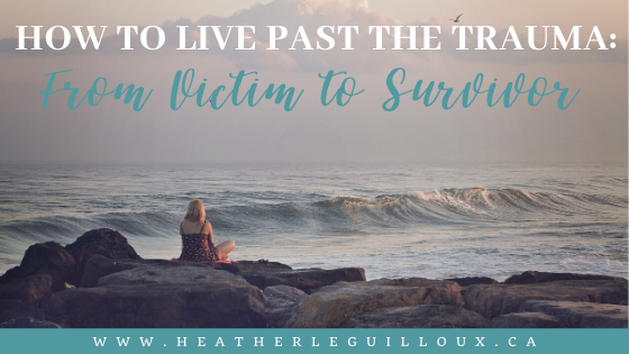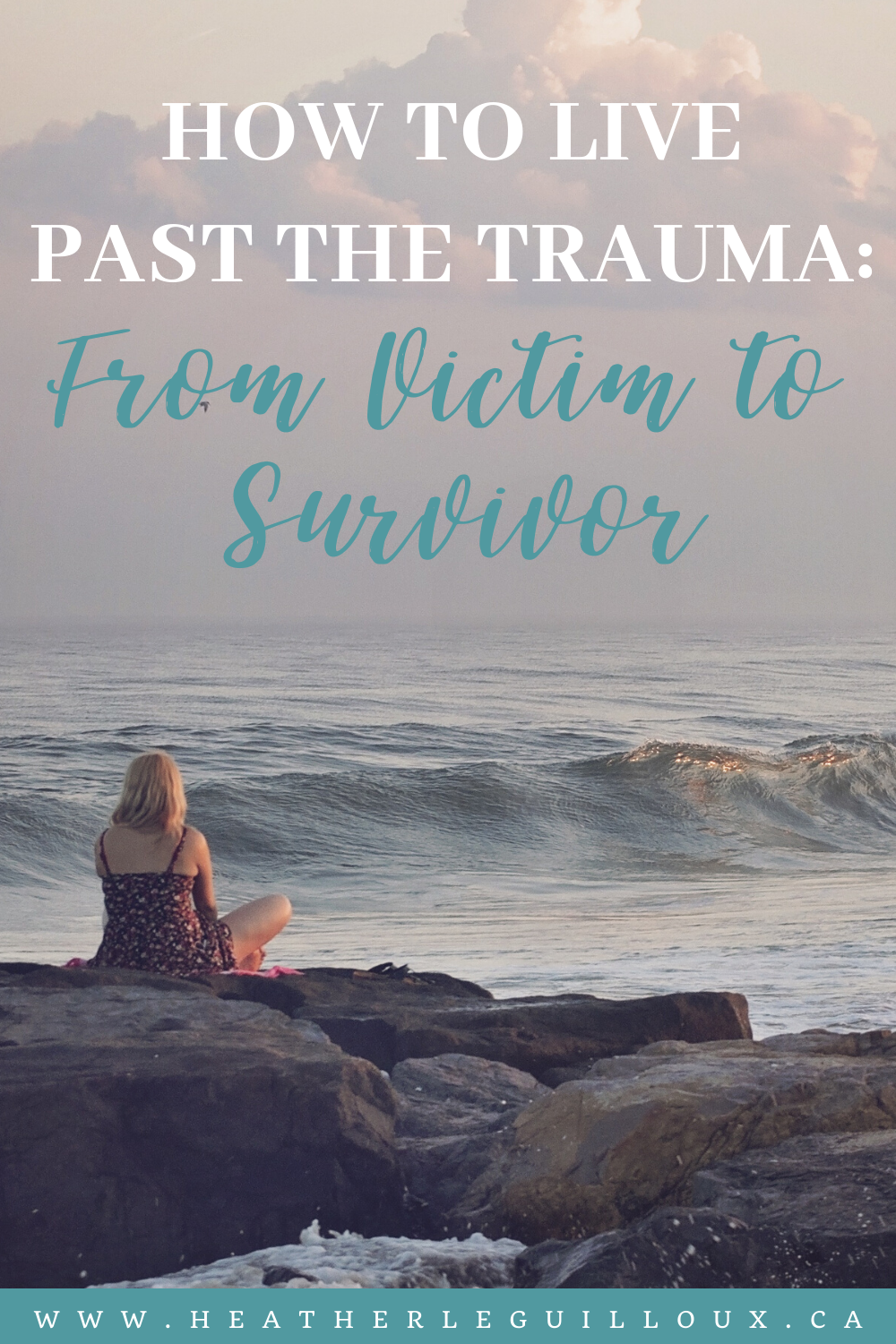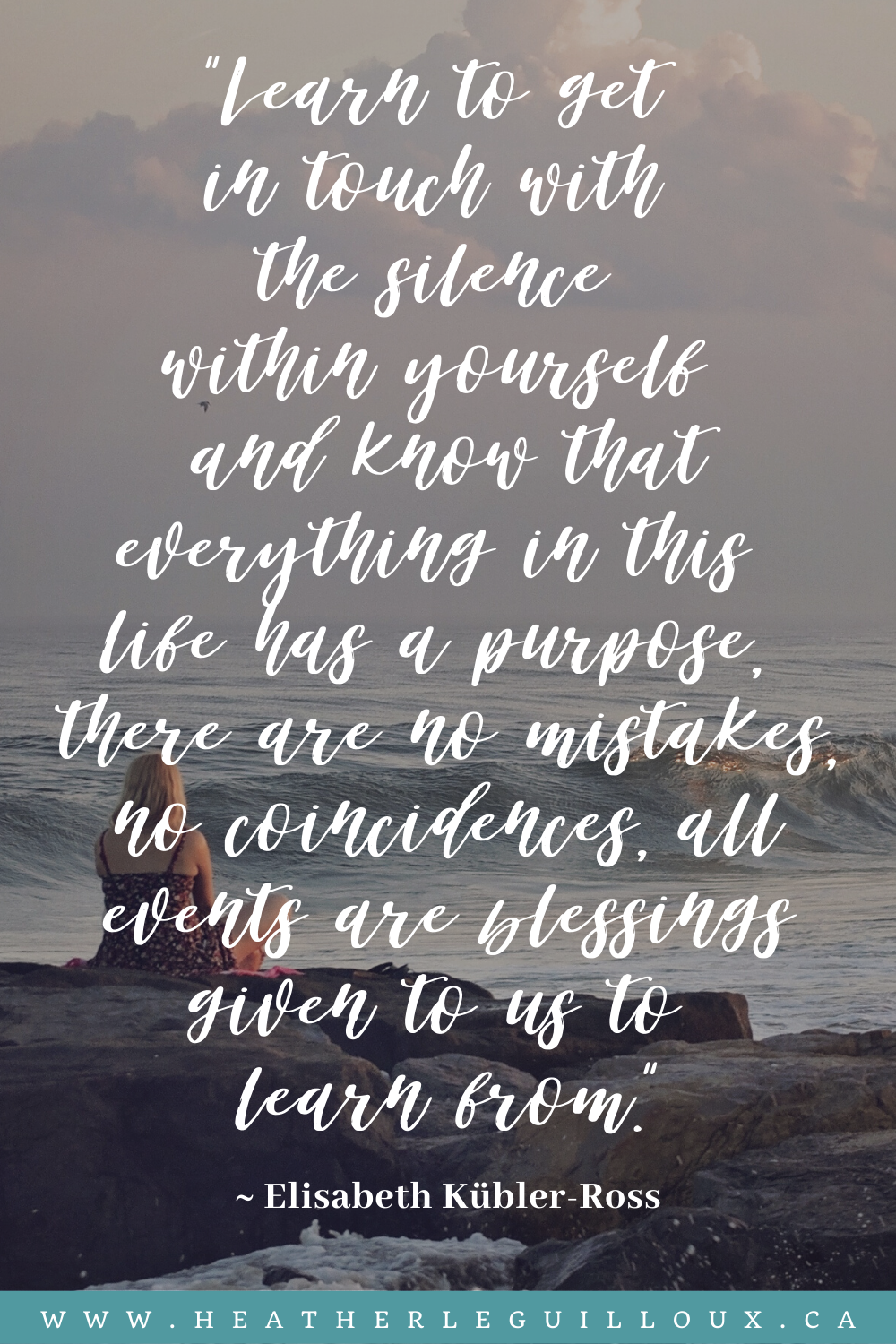|
|Trauma is defined as a "psychological, emotional response to an event or an experience that is deeply distressing or disturbing" and importantly, trauma can experience from a range of experiences. An individual may go through an event that leaves them emotionally shattered, yet this same event may not be experienced as deeply distressed or disturbed by others. Therefore, a trauma response is very unique to each individual.
This guest post has been shared by Clarissa Thomas from pastthetrauma.com - a website dedicated to providing a safe, open and healthy environment where both survivors and those who support them can find hope, wisdom, and healing past the trauma.
Clarissa herself is a survivor of trauma and her words show her passion to educating and providing hope to other trauma survivors and their families. Please note: This article does not contain healthcare or therapeutic advice. If you are concerned about your health or well-being, speak with a health professional or visit your nearest medical facility in an emergency. This is a guest article and may contain affiliate links. How To Live Past The Trauma: From Victim to Survivor
I'm a Survivor
You may or may not remember the song, "Survivor," by Destiny's Child from back in the early 2000s. But the chorus for that song helped me get through some of my hardest moments. It goes like this: I'm a survivor (what), I'm not gon' give up (what) I'm not gon' stop (what), I'm gon' work harder (what) I'm a survivor (what), I'm gonna make it (what) I will survive (what), keep on survivin' (what) Did I give away my age yet?! Yes, these lyrics have been a great cornerstone to remind myself that, although tough moments have happened, I can and I WILL continue to fight for the life I deserve. And you deserve that life, too. Past The Trauma Survivors come from all sorts of backgrounds and stories. Some of us witnessed combat on the battlefield, a tragic car accident, or even witnessed terrorist attacks. Others may have dealt with losing loved ones to an illness or a myriad of other kinds of trauma. But, one thing that unites us all is that trauma doesn’t have to define us. We can CHOOSE to live past the trauma. Here are some tips that might help get you started on your journey to the life you deserve. Embrace the New You When I first went through my trauma, I remember thinking, "How did I let this happen? I was such a good girl, an innocent girl. Where is she? I want her back!" I've heard others ask, "My spouse said I changed. How do I get back to who I was?" The first thing to understand is that trauma survivors are changed forever. Our versions of the world, our core beliefs have changed. I want you to know that it is OKAY. It is normal to be changed by such a troubling event and you aren't alone. I've been there, too. This is the time to acknowledge we have changed and to be KIND to ourselves with that acknowledgment. It is then that we can work through accepting this change and move towards the life we deserve. Deal with the Messy Stages When someone experiences trauma, he or she can go through a series of emotions such as denial, anger, depression, bargaining, and (eventually) acceptance. Sound familiar? Yup, it's Elizabeth Kubler-Ross's stages of grief. As I went through the journey past my trauma, I discovered these messy stages weren't a punishment to go through, but rather a blessing. It was an opportunity to let go of the "untainted" little girl I was to become the new, stronger person I am today. So let's talk about these stages. Denial "This didn't happen to me." "What I went through is just the way things are." "It happens to everyone." This is what denial can look like sometimes. You may try to normalize it or pretend that the event didn't occur altogether. And I'm here to tell you, friend, that it's ok. And it's normal to have these thoughts. If you are experiencing this first stage, take heart that you have started your journey to healing. Just remember how important it is not to stay here. The purpose of living past the trauma isn't to deny something bad has happened. It's about knowing you are stronger than anyone could have imagined.
Anger "I can't believe this happened!" "S/He won't get away with this!" "How could I have let this happen?!" I believe this is the pivotal point of healing. This is when a person has accepted the reality of his or her circumstances. You can't get angry unless you believe something has happened that merits that anger. So feel it, embrace it, and move forward. You deserve better. Depression For me, this was the longest stage I went through. When I am triggered I experience these feelings all over again and find myself battling this stage the hardest. This is where the feelings of "weakness" awaken. This is when I believe I have no strength to move past my reality and I want the world to go away. This is also the stage where a network of wonderful supporters can help pull you out of that despair. If you are in this stage of depression, let me encourage you to reach out to people you trust: family, friends, or a mental health counsellor. If you feel you don't have anyone you know you can trust with this information, find a support group. Luckily, in this age of technology, you can even find support online. I found an amazing support group on Facebook called Anxiety, Depression, and PTSD Worldwide. Take a look and see if this support group might help you, too. Bargaining Some people experience this emotion before they hit a depression. But, for me, that wasn't the case. I found myself at such a low point that I began bargaining as a way to get myself out of depression. It looked something like this: "Lord, please, I don't want to feel this way. I'll do anything, I'll follow you anywhere. Please take the pain away." Although it may look and/or feel like the lowest point of moving forward, it's also a point to celebrate. Your mind is ready to get past your pain. In bargaining, survivors realize they do have power in the choices they make. We can either stay in our pain and depression or we can do something to take that pain away. Be cautious here. There are both healthy and unhealthy ways of taking that pain away. Here is a list of healthy things you can do as you bargain past the pain: 1. See a counsellor Although it can be tough during this pandemic to see a counsellor, there are several mental health providers using tele-health to help their patients. Virtual counselling services like online-therapy.com have also become popular. This service uses cognitive behavioral therapy to help people heal mentally. 2. Start a gratitude journal In 2015, a study conducted in Italy found that those practicing gratitude were less likely to suffer from depression and anxiety symptoms. They also found that expressing appreciation protected people against depression and anxiety. Why? Because being grateful led to being less critical, less punishing, and more compassionate with themselves and others. If you need help starting a journal, download your free copy here. 3. Take a walk Exercise has long been linked to positive mental health benefits. So if you find yourself in a funk, put on your walking shoes and hit the pavement. The fresh air and vitamin D from the sun does wonders for our health, both physically and mentally. 4. Connect with other survivors I can't stress enough the need for community when dealing with the rough patches in life. Connecting with others who have dealt with similar events helps to alleviate thinking no one can understand. It also helps us see that there are people who have been through it and emerged stronger. It can also show us others may be hurting more than us - others we may be able to help. As trauma survivors connect, we can help lift each other out of our holes together. Sometimes that is all the extra strength we need. Acceptance This is when it's time to say goodbye - goodbye to the person you used to be before the trauma, but also goodbye to the person who was so damaged by an outside event. It doesn't mean you hide the person you once were or the event you went through. Neither does it mean you are condoning what caused the trauma or how you reacted to it at one time. It just means you are ready to put that time of your life to rest. For people who have lost a loved one, we know that we will never forget the amazing things they did in our lives. We also may not forget how that person passed. But we do get to a point where we say, "Yes, he or she is gone and I miss that person so much. But I am still here and I have to live." It's the same as saying goodbye to your old self. I miss the vibrant, care-free young girl and woman I once was. I miss going out into the world thinking nothing could hurt me. But that past isn't my current reality and I have one of two choices: continue crying over it, hurting myself, staying in an unhealthy place or move forward and find happiness in knowing how to protect myself in my present. From Victim to Survivor Going through these stages (and mind you, you may go through each one a few times and in different orders before you emerge) is not easy. It can be a painful process. But the metamorphosis that comes from it is AMAZING! No matter what, it takes a decision. You can have all the tools in the world, but if you never pick them up and use them, you'll never see the beauty of becoming a survivor. If I could go back and talk to the 2006 version of me, I wouldn't believe I could have a healthy relationship, a beautiful daughter, and a life I love! Thanks to the wonderful professionals who believed in me, who guided me and who taught me, I am a survivor in all sense of the word. That is the hope I have for you, friend. Elizabeth Kubler-Ross wrote something amazing as her life came to an end: "I now know that the purpose of my life is more than these stages... It is not just about the life lost but also the life lived." Take that life and live it to the fullest. Let's take the leap and learn to live PAST THE TRAUMA. MENTAL HEALTH RESOURCE VAULTGreat!Check your email for instructions on how to access the Mental Health Resource Vault.
Related Article: How Gratitude Affects the Brain: Gratitude and Mental Health
The links in this article may be affiliate links that I will be compensated for at no additional cost to you. Looking for additional health & wellness products? Visit the store!
2 Comments
5/23/2020 11:40:46 am
It can be extremely difficult to go through a traumatic event or a part of your life filled with trauma.. but with support and inner strength, life can get better. Thanks so much for your comment!
Reply
Your comment will be posted after it is approved.
Leave a Reply. |
Welcome to the blog!↓ That's me, Heather. :)
MENTAL HEALTH RESOURCE VAULTGreat!Check your email for instructions on how to access the Mental Health Resource Vault. Categories
All
Popular Posts// 25 Positive Mindset Quotes
// Self-Care Bullet Journal Spreads // 7 Ways Your Physical Health is Connected to Your Mental Health |






 RSS Feed
RSS Feed
















